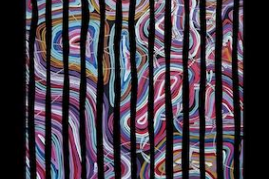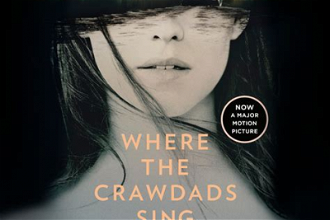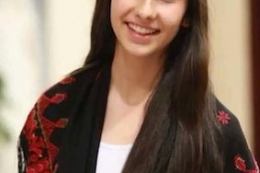Timeline; Thirteen; American Cousins; The Singing Detective
Timeline
Having read Michael Crichton's Timeline and enjoyed its kind of Saturday matinee adventures, I was looking forward to the film version. It begins exactly as the novel does. The last scene is the same as in the novel. And, in between, it stays very close to the novel as well. The result is an entertaining adventure in the past and some imagination concerning time travel in the present. When an archeologist (Billy Connolly) working on the ruins of a 14th century fort and village disappears, especially when a message dated 1357 is discovered, his rather gung-ho son (Paul Walker) and the archeological team (headed by Frances O'Connor and Gerard Butler) are naturally concerned. What they never dreamed was that they would be following the professor within hours back into the 14th century. Not only do they have to find him and bring him home, they have to take an active part in the battle between the English and the French, rescue the Lady Claire (Anna Friel), defeat the English lord (Oliver), confront a scientist who finds himself more at home in mediaeval France - and get back themselves. Which is - more or less - what they accomplish. The enjoyment is in finding out what is the more and the less. Michael Crichton's novels are a bit like theme parks (well, of course, Jurassic Park really was one) and this version takes us on a mediaeval adventure of knights, damsels and battles with 21st century Americans all the while trying to disguise themselves (although it is yet another case of the yanks coming to the rescue of the Europeans!). Even the technological plant where the time machine operates is a different kind of theme park. Richard Donner (Omen, Lethal Weapon, Maverick, Superman) set out to make a rollicking adventure without pretensions to literate dialogue or method acting. And he has. Thirteen A close-up on contemporary Girls' Culture in the US, especially at the onset of puberty, puberty blues, where thirteen year old girls experience the angst of past generations but find themselves in a permissive and rootless Californian society where glamour and flaunting it are everything, where media dictate what is fashion and what is not, where opportunities for drinking, for drugs and for sex are immediately available and where parents, their own struggles still going on and marriages being fragile or broken, try to exercise some authority and discipline but their efforts are futile. Welcome to one of the principal parents' nightmares.
Thirteen. One hopes that this is not too much the case with most families. On the other hand, it is the perennial context in affluent societies for girls to experience rejection, question self-image and identity, rely too much on peer influence and pressure and make a mess of their lives. Catherine Hardwicke won the director award at the Sundance Festival 2003 for this, her first film. Trained as an architect and working as a set designer with many well-known directors, she ventured into writing, especially with the alienated daughter of a close friend. The daughter, Nikki Reed, had just gone through her thirteens and was encouraged to share in the writing of the screenplay. Nikki Reed appears in the film, not as Tracy, the girl who embodies so much of her experience, but as Evi, her precocious and provocative best friend. The role of Tracy is played very well by Evan Rachel Wood. There is a strong adult contingent in the film, led by Holly Hunter as Tracy's well-meaning but floundering mother, Jeremy Sisto as her ex-druggie boyfriend and Debora Kara Unger as Eva's mother. The film is set in LA with its combination of real and unreal. Perhaps the treatment is sometimes larger than life and audiences might react by saying this is too much. However, for the impact of the film and its challenge to thirteen year old girls and their parents, the melodramatic tone gets attention and keeps it. What will become of Tracy? American Cousins A pleasant family comedy drama set in Glasgow. Actually, it's that kind of Family comedy, two New Jersey mafiosi take refuge with their fish and chip shop owner cousins after a deal goes wrong in the Ukraine. The Ukrainians make contact with their thugs from Liverpool - Eastern European crime lords are doomed if they rely on ineffectual crooks like these. There are also some locals who want to take over the fish and chips shop. This mob is a far more violent and serious menace. Which is not to say that the violence is the main theme of the film. Rather, the two mafiosi turn out to be quite decent chaps (within their vocational limits) and help out in domestic ways as well as a bit of professional know-how. As played by Dan Hedaya and Danny Nucci, they are mostly very genial. On the local scene, Gerard Lepkowski is an obviously nice man, ethical but with a reticent charm. Shirley Henderson helps out at the shop and is in love with the owner. But neither of them say anything until it is almost too late. This is the kind of quirky local film that gets overlooked in the wake of the big blockbusters but which many people would find nicely entertaining (though with the Celtic propensity for four-letter emphasis), with interesting characters, some good humour and some happy comeuppance for the villains. The Singing Detective In the years before he died, British playwright and television drama's writer par excellence, Denis Potter adapted his British television series, The Singing Detective (with Michael Gambon) for the cinema screen and with an American setting. For fans of the series, this might well seem a very abridged version. For those who have not seen the series, the film will put audiences on the back foot at first. They will have to do some assessing of their emotional and intellectual response as they come to terms with this internal drama, with the fantasies in the imagination of the detective. He is in hospital suffering from a virulent form of psoriasis which disfigures his face and makes his whole body alien and uncomfortable. He has written a noir detective story and finds himself retreating into his novel, into his intuitive imagination which has become suspicious of his wife and an agent, assuming that they are out to steal his manuscript. He also lapses back into destructive memories of childhood, his mother's betrayal of his father with his partner at a desert garage. The particularly Potter characteristic (which was to the fore in Potter's television series with Bob Hoskins and the Americanised film version with Steve Martin, Pennies from Heaven) is character's bursting into song and sometimes dance, a selection of songs from the 1960s. While this paragraph describes something of what is going on and how, it still does not prepare us for the experience of moving in and out of times, in and out of truth and fantasy, accepting the songs and trying to understand the character of the detective. It is further complicated when the detective begins therapy with his psychiatrist and wants to play his emotional and defensive games with the doctor. The strength of the film is in Robert Downey Jr's screen presence and skilful performance, sometimes petulant, sometimes paranoid, sometimes pleasant. His psychiatrist is at first unrecognisable, a balding Mel Gibson. Robin Wright has a very difficult role because she has to embody the detective's wife, both devoted and two-timing in his mind. Jeremy Northam plays the suave agent as well as the seducer of the detective's mother. Then there are two imaginary thugs who keep wandering in and out of the action, murdering Wright at one stage, threatening the detective at another. They are played as an odd couple by Adrien Brody and Jon Polito. For many the whole thing may be too confusing and demanding, but Keith Gordon's film is an intriguing challenge.
LONDON - 5 January 2004 - 1,300 words





















